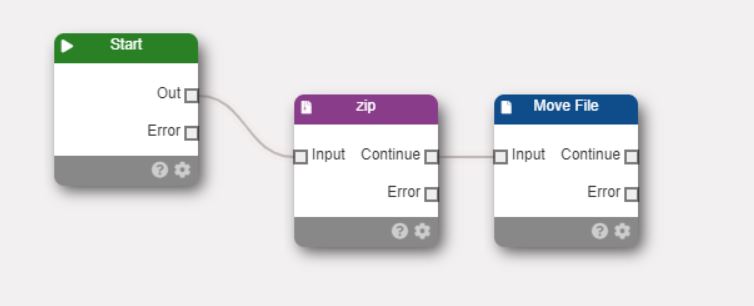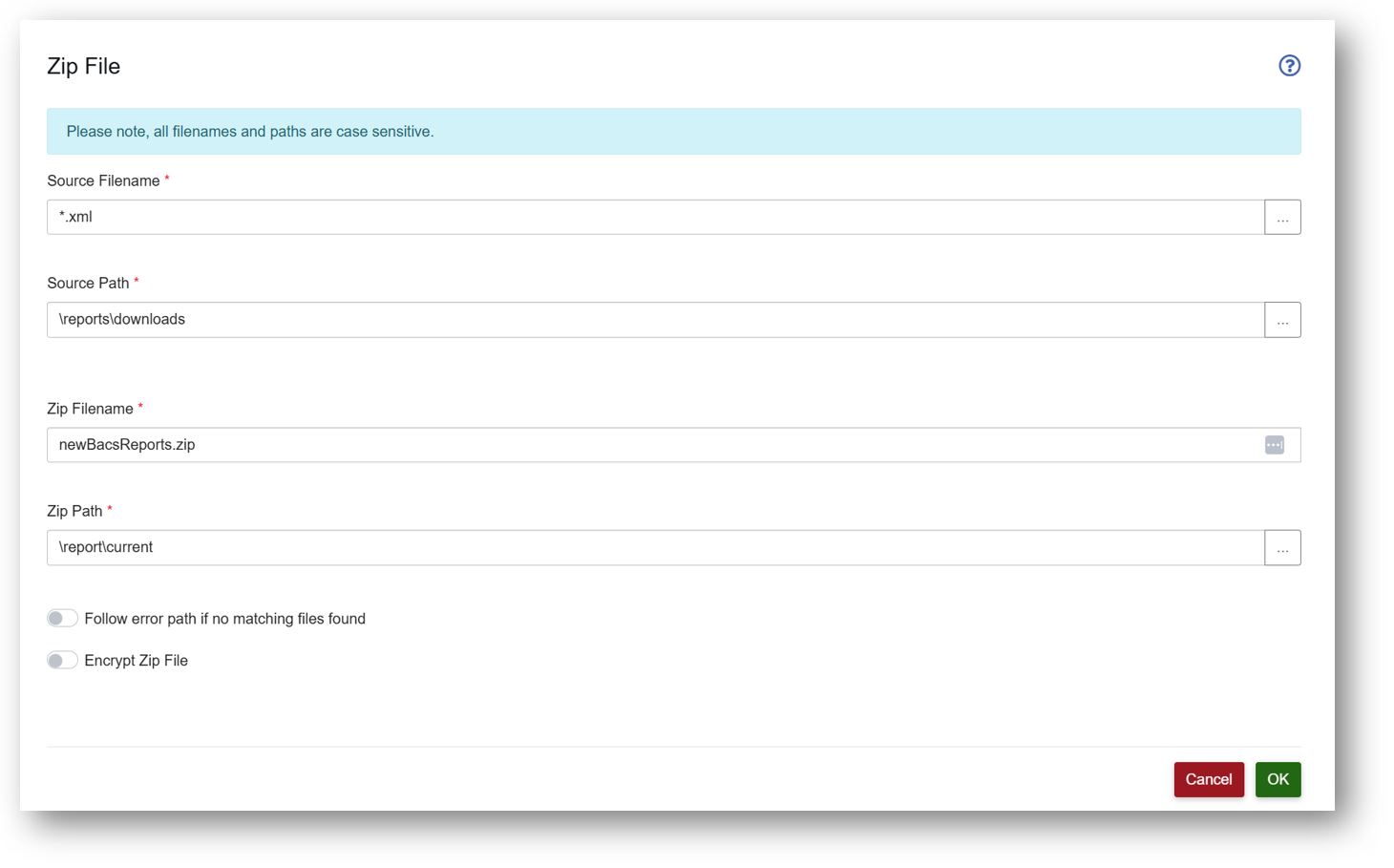Zip File
Purpose
Compresses (Zips) one or more files, resulting in a zip file.
A static filename, filename variable or wildcards can be used to select files to be zipped. Compressed files can be encrypted using an optional password.
The node will produce a standard zip node that can be unzipped using 7zip or Winzip

Configuration

Filename
The filename is the name of the file(s) that will be compressed. You can use various wildcards such as * and ?. If the wildcard pattern results in multiple matching file then each file will be zipped in a separate file.
Wildcards
Standard * and ? wildcards are fully supported allowing you to copy all files matching a particular wildcard pattern.
The node can also use more advanced wildcards such as those based around ranges: […]
| Wildcard | Description | Example | Matches | Does not match |
|---|---|---|---|---|
| * | matches any number of characters | myfile.txt | myfile.txt or myfile.csv | myfile1.txt |
| ? | matches a single character | myfile?.txt | myfile1.txt | myfile22.txt |
| [abc] | matches one of the characters provided | [pf]ile.txt | file.txt, pile.txt | mile.txt |
| [a-z] | matches one character from the range provided | myfile[0-9].txt | myfile1.txt, myfile2.txt | myfile10.txt |
Additionally you can use the ! character to apply ‘not’ logic
| Wildcard | Description | Example | Matches | Does not match |
|---|---|---|---|---|
| [!abc] | matches one of the characters NOT provided | [pf]ile.txt | mile.txt | file.txt |
| [!a-z] | matches one character NOT from the range provided | myfile[0-9].txt | myfilea.txt, myfile22.txt | myfile1.txt |
Path
This is the path to the directory where the files are stored in the Paygate environment.
Tokens
Special tokens can be used in path and filename fields to allow them to be dynamically named. For example: MyReport-21-09-2025
| Token | Meaning | Example |
|---|---|---|
| {dd} | Current Day number | 12 |
| {MM} | Current Month Number | 03 |
| {yy} | Current Year (2d) | 25 |
| {yyyy} | Current year (4d) | 2025 |
| {hh} | Current Hour (24hr) | 07 |
| {mm} | Current Minute | 45 |
| {ss} | Current Second | 22 |
| {SSS} | Current Millisecond | 123 |
Follow Error path if any files fail to unzip
Determines the path the workflow will take when zip errors occur. The zip workflow node has two outputs: Continue and error.
If ‘Follow error path’ is enabled, whenever an error occurs in the unzip process the status of the unzip node will be ‘Error’ and then error path will be followed.
If ‘Follow error path’ is disabled, whenever an error occurs in the unzip process the status of the unzip node will be ‘Warning’ and the log will contain error messages but the ‘Continue’ will be followed.
Error reasons are varied but here are a few examples: - Incorrect password being used in an encrypted zip file - No matching files and so nothing to unzip - Corrupt zip file - Corrupt file within the zip file
Encrypt Zip File
Determines if the resulting zip files are encrypted and require a password to uncompress. If enabled a password is required.

Encryption algorithm
The Zip File node uses 256bit AES to encrypt password protected zip files.
Notes
The encrypted files that Paygate creates when using an encryption password cannot, at the time of writing, be decrypted using Windows Explorer in Windows 10 and windows 11. This is a known limitation of Windows explorer.
